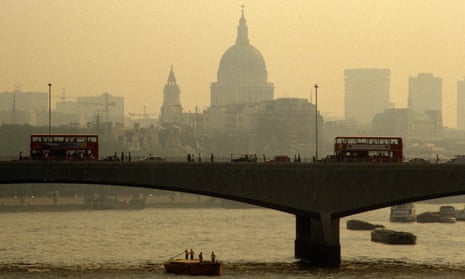When the doctor tells you that your cholesterol is too high, you tend to listen and change your diet. When the world’s climate scientists tell us that temperatures are rising to dangerous levels, we should heed their advice. It’s time to give up climate change, it’s bad for our health.
I’m not talking about the health of our planet or the health of species such as the polar bear, so often associated with climate change – though they are suffering. I’m talking about human health. The health of you, your family, your neighbours – each and every one of us.
A report just published in the Lancet from the specially created Lancet Countdown initiative, reveals just how bad climate change is for public health. The diagnosis reveals that hundreds of millions of people are already suffering the health impacts of climate change. Its insidious creep is being felt in multiple ways: rising temperatures are hastening the spread of infectious diseases; crop yields are becoming uneven and unpredictable, worsening the hunger and malnourishment for some of the most vulnerable people on the planet; allergy seasons are getting longer; and at times it is simply too hot for farmers to work in the fields.
Typhoons and hurricanes, such as Harvey, feed off unnaturally warm waters to deliver more forceful threats to human health, including to life itself. The attribution of climate change as a contributing factor in such events is of course complex. The Lancet report’s analysis – that there has been a 46% increase in extreme weather disasters since 2000 – helps to cut through any confusion.
Then there is the heat, which might be the most widespread and dangerous of all. In 2015 alone, according to Lancet Countdown findings, heatwaves affected the lives of 175 million more elderly people worldwide, following a strong trend over the last two decades. The list goes on. The most vulnerable – including elderly people and children – are most exposed to the risks, but everyone is affected and no country is immune. We are only just beginning to witness the manifestation of very concerning trends. Unavoidable increases in global temperature are set to further exacerbate a host of health challenges.
Here’s the good news. While the Lancet’s report lays bare the many ways that climate change impacts on our health, it also shows that tackling climate change directly, unequivocally and immediately improves global health. It’s as simple as that. Tackling the looming global medical emergency is also an unprecedented opportunity to improve public health around the globe. Let’s get to it.
Consider this: local air pollution around the world – much of it coming straight out of exhaust pipes – kills about 6.5 million people annually. In response, many cities – including London and Oxford – countries and major automotive companies have declared an end to the internal combustion engine and are working towards emissions-free transport. They see the market is moving, because it must, and expect it to be profitable. More can follow: getting ahead of the electrification wave that is exciting investors and delivering extraordinary benefits to our air, our lungs and our hearts is in all of our interests.
I learned a long time ago that success is more likely when we take on challenges with determination and stubborn optimism. That’s how parties to the United Nations climate talks regrouped after disappointing outcomes in Copenhagen and even more dire predictions from climate scientists, coming together to adopt the Paris agreement. It’s why I know that we can take this critical diagnosis from climate scientists – of a climate change-fuelled public health emergency – and accelerate solutions that improve the health and wellbeing of billions.
We are already finding the remedies. The UK has pledged to phase out coal by 2025, a process that will save thousands of lives each year, save the NHS up to £3.1bn a year in health costs and accelerate the modernisation of our electricity sector.
Our scientists have been telling us for some time that we’ve got a bad case of climate change. Now our doctors are telling us it’s bad for our health. The Lancet Countdown report is an important climate health check-up and prescription for the action we need. The benefits of getting climate fit are too good to resist: safer, cleaner air and water, more energy independence, more jobs and vastly improved land use. We can all support our governments to do more on this. The G7 meeting of health ministers later this week is as good an opportunity as any to ensure they are heeding the sage advice of our medical experts.
